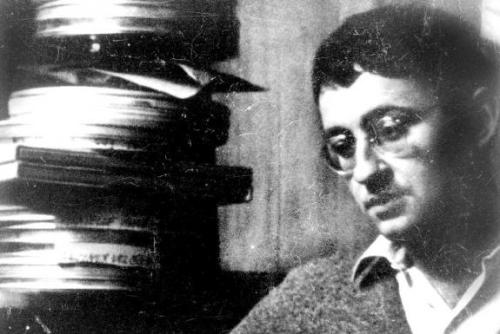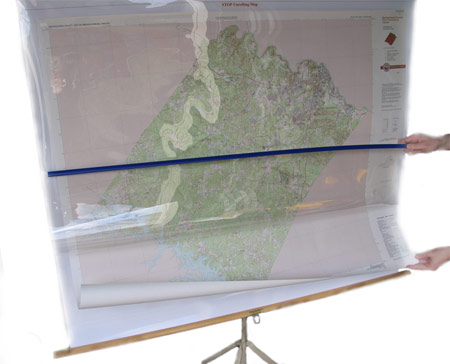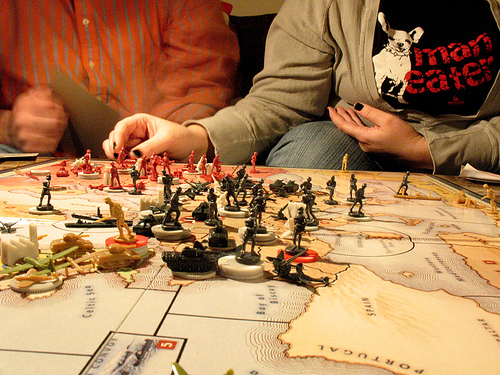I’ve moved on to other pursuits, including my PhD and writing work. Follow me on twitter @dangolding, find my portfolio site at dangolding.com, or read my Crikey blog.
Another update
For those of you who are sick of Subject Navigator simply being about boring updates these days, I apologise. The good news is that I’ve started writing about games again. Over at RedKingsDream, I’ve started a collaboration with three other Australian videogames writers. We all know each other well and know we can feed off each other nicely, thanks to our previous work at PALGN and the podcast there. I’m really looking forward to what we’re going to create there, and I hope you pop on over. My first article can be found here.
Does this spell the end for Subject Navigator?
Well, no. Not at all. I actually have some really big plans for Subject Navigator to hopefully be implemented before the end of the year, but you’ll have to wait on that one. But know that before you know it, Subject Navigator will be back at full steam.
Filed under Blogging, videogames
The great space question

Filed under analysis, criticism, space, videogames
Addendum
Two quick updates. This will be the last you’ll hear from Subject Navigator for a while.
- A colleague and I have started up a new website: Empty Pocket Media. I think it’s got a lot of promise, though we are still building content. It’s a cross-media website, dealing with music, film, as well as videogames. All feedback is greatly appreciated.
- I’m heading overseas for over four months tomorrow. This means three months of travel in Europe, and one month in North America. To keep in contact, I’ve started a travel blog here with one of the lamest puns for a title I could think of. So if you’re curious as to where I am, or what I’m up to, check it out and I’ll try and keep it up-to-date.
When I return I start my new thesis and degree more-or-less immediately, so expect Subject Navigator to return with full force and renewed energy. In the meantime, I’ll try and write the occasional article for Empty Pocket Media, and the other contributors will keep it flowing nicely, so please check it out.
I can’t thank each and every one of my Subject Navigator readers enough – over the past few months you’ve really made blogging a great experience for me. So thanks, and I hope to reward your patience with renewed content when I return.
Thanks again,
Dan Golding.
Filed under Uncategorized
An update
You might wondering where all the Subject Navigator posts have gone. To an extent, I am too. Unfortunately, it’s a matter of time, and free time, which I have none of at the moment – I’m in the middle of moving house and preparing for a big year. So I thought I’d update you all on some goings on to justify my absence.
First, I’m no longer working for PALGN. This was a tough decision, as I believe it’s a great website that has given me a number of opportunities. But it was time to move on.
Second, I’m working on two new websites, one videogame dedicated, and one cross media focussed. Both are going to be great, and hopefully allow me to really expand as a writer. I can’t deal out the URLs yet, but needless to say, if you are reading this, you’ll be the first to know when they go live.
Third, you can now access my thesis in a new way (other than clicking the link to your right – hint, hint). It’s now been uploaded and is available at Game Career Guide, a sister site of Gamasutra et al, here. Which, if nothing else, meant I went all squirmy inside as something I’d written was (is?) temporarily on the first page of Gamasutra, if way down the bottom! I hope this opens up a new audience of readers for it, and I get even better feedback than some of the amazingly insightful and thoughtful words I’ve received so far.
Anyway, Subject Navigator should return to normal programming shortly, when I’m not living in boxes and assembling beds. Thanks for your patience, and I hope you stick around for my future projects.
Filed under Blogging
Brothers in Arms, the strategic desensitizer
There are few games that have struck me as wanting to be a film as Brothers in Arms: Hell’s Highway. Or rather, wanting to be a TV series. The first ten minutes of Hell’s Highway had me seriously tossing up asking its creators if they shouldn’t just have just applied to work on The Pacific instead. The cutscenes – in the beginning, interminably long – have perfected that Band of Brothers tone and feel, and even the musical theme appears to share the same first few intervals. Now, I like Band of Brothers. But I’d rather watch the real thing than play an imitator. My patience was wearing thin, however, I knew several people who swore by the series, so I stuck with it. And I’m glad I did: Brothers in Arms presents a compelling take on World War Two that I don’t think could be achieved in any other medium.
Filed under analysis, space, videogames
Call of Duty 2 and the World War Two theme park
There is definitely a place for theory and lofty concepts. A blog is one such place. However, I very much admire L.B. Jefferies’ sentiment when he suggests that there comes a point when theorising is useless without practical implementation: “Talk is cheap and in abundance on the internet, it’s actually doing something that’s in such short supply. If you want things to change, just act that change out yourself.”
In that spirit, then, I’ve decided to put my money where my mouth is, and instead of presenting Subject Navigator readers with another post on how one concept from one medium is like a different concept from another, I’d like to analyse a game or two. I want to look at some World War Two videogames, overpopulated as the genre may be, and think about what their gamespace says about their approach to the period. I’m starting today with Call of Duty 2, and I’ll be continuing later on in the week with Brothers in Arms: Hell’s Highway.
Filed under analysis, space, videogames
How Guy Debord can help us understand videogames

When researching my thesis, I looked at quite a few theories and theorists of space, place, and geography. Perhaps the most interesting discovery I made last year, however, was Guy Debord and the Lettrist International’s concept of psychogeography. Debord was a French Marxist who found influence in the ’60s, largely due to a fascinating book called Society of the Spectacle. He was also probably more than a little alcoholic, and ended up shooting himself in 1994.
So what can a dead continental philosopher tell us about videogames?
Filed under videogames
Mapping the Brainysphere: 29 blogs switched-on gamers should read

The year 2008 was nothing if not a great year for intelligent discussion of videogames. Every month, it seemed to me like a new blog would pop up with an amazingly insightful analysis of some new game, and I’d be forced to go through their backlogs for everything else they’d written. Underneath it all, there is a real community thriving here; one that talks to itself and many hundreds of silent readers out there in the great internet ether. So, I decided, as much for myself as for any visitors of this blog, that I’d try and map out the Brainysphere; those blogs which have discussed videogames in 2008 in a manner beyond the surface. I’ve tried as best as I could to include everyone I have read this year, and to not link directly to their blog but rather, to what is in my opinion their best post for 2008.
If you believe your blog, or someone else’s blog should be here but isn’t, please let me know in the comments. Any omissions are purely because I am not superhuman enough to keep up with the lightning pace of the Brainysphere, or I simply forgot.
Without further ado, and in purely randomised order, these are the first 29 blogs of the Brainysphere:
Filed under Blogging, videogames
A Manifesto

There are many pleasures to be found in videogames. Some games are varied and diverse; others are more focussed on particular pursuits. Some games are almost solely directed towards the pleasures of competition, of challenge, of skill. Others are instead of the pleasures of a world: of interaction, of creation.
These things we know videogames do very well. But we’re slowly realising that these aren’t the only things that videogames are good at. With casual games, we’re seeing that there is quite a lot more to the medium than we’ve assumed. Casual players, for example, don’t seem to like difficulty. Casual players like to get in and get out, enjoying the experience but leaving the grinding to those who need it.
Michael Abbot today wrote about the new Prince of Persia and the difficulty issue that some commentators have complained of. Certainly, many hardcore players don’t like the lack of punishment the game doles out and the consequences of its generosity. But by the same token, I’m certain many will embrace the accessibility provided by the pulling of the Prince’s punches. This is a crucial point: if we can be disinterested in challenge in games, what then else can we be interested in? Exploration and navigation are some of the ideas I am most obviously interested in, as I have argued through this blog and in my thesis. However, I think these ideas are linked to a larger concept that videogames do very well: being.
Iroquois Pliskin wrote of 2008 as the year of ‘being there’. It’s an illustrative metaphor, as Iroquois aptly shows just how important this year was for the immersive depth of our videogame worlds. But he also hones in on the point that made some see 2008 as an off-year – not with the ‘being’, so much as the ‘doing’. The problem with Grand Theft Auto IV was not with the wonderful world, but with what one had to do in it. The same, Iroquois suggests, can be said about Far Cry 2, Fallout 3 and other major 2008 videogames. There are probably ways to overcome this, and certainly in the future we will have videogames with great worlds and amazing things to do in them (if we don’t already).
However, I want to argue that for 2009 and the future, ‘being’ should be just as much of a point as ‘doing’.
This medium, this wonderful new medium, has given us a whole new language to communicate and depict experience. We don’t have to just use it in the pre-established modes of competition, challenge and skill. Why can’t we just be?
This is how videogames could be used to more effectively communicate memory, feeling, emotion. We could have biographies – where the player simply navigates the memory, the life of a subject in a dream-like state. The simplest description might be some sort of cross between The Graveyard and Flower; an experiential world where goals are only loosely present and vaguely desirable. The greatest achievement is to be there; to experience, to see, to hear. To be a digital tourist, a sight-seer (or perhaps more accurately, a site-seer) of sorts.
We could reconceptualise the music of The Beatles through a navigable space; visiting Strawberry Fields, seeing Sergeant Pepper’s band and counting how many potholes it takes to fill the Albert Hall. While watching a recording of Cirque du Soleil’s Love show, I was struck by just how much I wanted to interact with the performance of The Beatles’ music. I didn’t want to play it – I have a guitar for that. I wanted to perform it. I wanted to experience it on a level that only a videogame could give me: I wanted to be there.
The ability to be and not do could be immensely powerful. It would allow us to experience the world, our history, our imagination in ways that those original, hopeful theorists of videogames thought some far off dream. It would allow us to convey ideas, to revisit time and place far gone, or not yet imagined. Our experience would be shared in ways similar, but inherently different than the goal-oriented ways we currently play. Importantly, it would allow videogames to say new things about topics I had thought inappropriate for the medium. It might show us Hiroshima before and after the bomb. It might take us through a history of physics, from Newton’s apple to the inner workings of Einstein’s mind. Most immediately, it would enable us to experience the wars of the Twentieth Century as more than the view down the barrel of a gun.
The current modes of videogames are incredibly popular and widely loved for good reason, and I am in no way proposing that they be done away with. But we should open ourselves up to these new experiences that the medium offers us: the experience of being. So in this post, a manifesto of sorts, I want to see if we can momentarily turn away from what we thought games were about. Let’s imagine being, and not doing.
Filed under videogames


